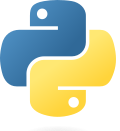In programming languages, name resolution is the resolution of the tokens within program expressions to the intended program components. Expressions in...
8 KB (972 words) - 10:11, 24 May 2024
Name resolution (programming languages), the resolution of the tokens within program expressions to the intended program components Name resolution (semantics...
465 bytes (92 words) - 21:12, 12 January 2024
expressions in that language. This applies both to programming languages, where the document represents source code, and to markup languages, where the document...
20 KB (2,436 words) - 19:58, 7 June 2025
different programming languages with the notions of scoping. In many languages, the scope resolution operator is written ::. In some languages, notably...
6 KB (548 words) - 04:27, 17 May 2025
is a list of notable programming languages, grouped by type. The groupings are overlapping; not mutually exclusive. A language can be listed in multiple...
90 KB (6,698 words) - 14:47, 15 June 2025
In computer programming, a naming convention is a set of rules for choosing the character sequence to be used for identifiers which denote variables,...
36 KB (3,859 words) - 06:19, 28 May 2025
Scope (computer science) (redirect from Comparison of programming languages (scope))
to language semantics. Name resolution (including scope) varies between programming languages, and within a programming language, varies by type of entity;...
76 KB (10,523 words) - 03:42, 18 June 2025
functional programming is a programming paradigm where programs are constructed by applying and composing functions. It is a declarative programming paradigm...
87 KB (8,696 words) - 16:44, 4 June 2025
Namespace (redirect from Comparison of programming languages (namespaces))
the full name must be used. Prominent examples for namespaces include file systems, which assign names to files. Some programming languages organize their...
30 KB (3,357 words) - 16:41, 7 June 2025
in publications as "PLANNER" although it is not an acronym) is a programming language designed by Carl Hewitt at MIT, and first published in 1969. First...
19 KB (2,311 words) - 04:31, 21 April 2024
supports multiple programming paradigms, including structured (particularly procedural), object-oriented and functional programming. It is often described...
175 KB (14,436 words) - 11:41, 18 June 2025
logic programming language Prolog. It has the same syntax and the same basic concepts such as the selective linear definite clause resolution (SLD) algorithm...
10 KB (945 words) - 21:44, 20 February 2025
In computer programming, an operator is a programming language construct that provides functionality that may not be possible to define as a user-defined...
19 KB (1,179 words) - 20:49, 6 May 2025
Skeleton programming is a style of computer programming based on simple high-level program structures and so called dummy code. Program skeletons resemble...
19 KB (2,500 words) - 17:31, 21 May 2025
(class-based), and component-oriented programming disciplines. The principal inventors of the C# programming language were Anders Hejlsberg, Scott Wiltamuth...
101 KB (8,541 words) - 19:08, 10 June 2025
Logic programming is a programming, database and knowledge representation paradigm based on formal logic. A logic program is a set of sentences in logical...
85 KB (10,767 words) - 04:50, 12 May 2025
prototype-based programming, corresponding to inheritance in class-based programming. The best-known languages that support delegation at the language level are...
14 KB (1,631 words) - 17:00, 23 February 2025
D is a systems programming language. Like C++, and unlike application languages such as Java and C#, D supports low-level programming, including inline...
59 KB (6,232 words) - 00:52, 10 May 2025
Prolog (redirect from Prolog programming language)
logic. Unlike many other programming languages, Prolog is intended primarily as a declarative programming language: the program is a set of facts and rules...
72 KB (8,098 words) - 08:09, 15 June 2025
method of manipulating resolution of domain names Rebinding, a change to the referencing identifier name binding in programming languages Bind (disambiguation)...
357 bytes (80 words) - 13:28, 15 July 2020
Variable shadowing (category Programming language comparisons)
of the shadowed variable name refer to, which depends on the name resolution rules of the language. One of the first languages to introduce variable shadowing...
7 KB (734 words) - 11:55, 15 May 2025
Objective-C (redirect from Obj-C programming language)
general-purpose, object-oriented programming language that adds Smalltalk-style message passing (messaging) to the C programming language. Originally developed by...
94 KB (10,687 words) - 18:20, 2 June 2025
Haskell (redirect from Haskell 98 programming language)
several programming language features such as type classes, which enable type-safe operator overloading, and monadic input/output (IO). It is named after...
50 KB (4,584 words) - 23:45, 3 June 2025
programming entities in many modern programming languages. It provides means to encode added information in the name of a function, structure, class or...
39 KB (4,519 words) - 11:00, 27 May 2025
based on programming languages and mechanisms supporting software evolution Maurice Nivat, research in formal languages and programming language semantics;...
58 KB (5,835 words) - 21:51, 25 May 2025
compile time. Rust does not enforce a programming paradigm, but was influenced by ideas from functional programming, including immutability, higher-order...
119 KB (10,766 words) - 05:52, 12 June 2025
Function overloading (redirect from Overload resolution)
In some programming languages, function overloading or method overloading is the ability to create multiple functions of the same name with different implementations...
12 KB (1,421 words) - 07:25, 27 May 2025
SLD resolution (Selective Linear Definite clause resolution) is the basic inference rule used in logic programming. It is a refinement of resolution, which...
10 KB (1,574 words) - 17:32, 30 April 2025
Dynamically typed programming languages defer type resolution until run-time. Weakly typed languages perform little to no type resolution, relying instead...
28 KB (3,596 words) - 11:57, 9 May 2025
TempleOS (category CS1 French-language sources (fr))
the OS. HolyC (formerly C+), named after a play on words of Holy See, is a variant of the C and C++ programming Languages designed by Terry A. Davis specifically...
15 KB (1,360 words) - 01:27, 5 June 2025






